Our evaluations and opinions are not influenced by our advertising relationships, but we may earn a commission from our partners’ links. This content is created independently from TIME’s editorial staff. Learn more about it.
If you have some extra cash to invest, it could turn into a tidy nest egg by the time you retire. Whether you scored a nice bonus at work, received an inheritance, grow money with high earnings on your savings, or bought a winning lottery ticket, here are 10 ways to invest $10K.
Best ways to invest $10,000: 10 proven strategies
1. Pay off high-interest debt
Paying down debt isn't a traditional investment, but it can help you save hundreds of dollars a month in interest charges. Here's an example: Say you have a $10,000 five-year personal loan with an 18% interest rate. You'll pay $254 monthly and $5,236 in interest charges over the repayment period. If you "invest" your $10K to pay off the debt instead, you'll save that $5,236, effectively earning an annualized return of about 11% in the process. Consolidation loans or balance transfer credit cards are good financial tools to help you achieve that goal.
Chase Freedom Unlimited®
Why we like it
The card_name is a solid flat-rate earnings card with annual_fee_disclaimer annual fee. Although the 1.5% cash back doesn’t seem impressive at first glance, it becomes more valuable when combined with other rewards cards from Chase that can be redeemed for a far greater value.
This card is recommended for everyday use, whether for doctor copays or big box store purchases. It can be a large earner for cardmembers who want to get the most out of their everyday spending.
2. Build an emergency fund
An emergency fund is a stash of money set aside to cover unplanned expenses, such as medical bills or home repairs. It can also help you stay afloat if you lose your job or can't work for some reason. Most financial experts recommend saving three to six months' worth of living expenses to prepare for the unexpected. However, depending on your family needs, job stability, lifestyle, and other factors, you might need to save more.
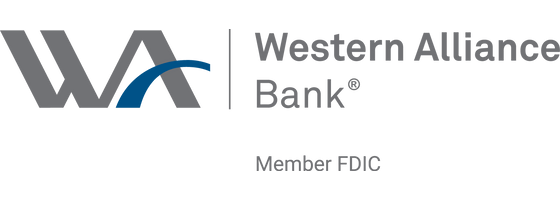
Western Alliance Bank High-Yield Savings Premier
Western Alliance Bank High-Yield Savings Premier
3. Build a CD ladder
A certificate of deposit (CD) is a time deposit that pays a fixed interest rate for a specific time, typically three to 60 months. With the best CD rates topping 5% annual percentage yield (APY), a CD can be a smart, low-risk investment. However, you'll pay an early withdrawal penalty if you need your cash before the CD matures.
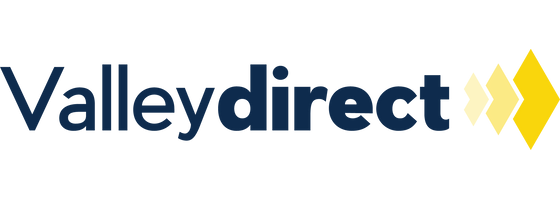
Valley Direct CD Account
Valley Direct CD Account
To avoid locking your money up in a single CD, consider building a CD ladder by dividing your deposit among multiple CDs with various maturities. A CD ladder lets you manage changing interest rates and provides greater liquidity than putting all your money into a single, long-term CD.
4. Get your 401(k) match
If you have a 401(k) match, it means your employer wholly or partially matches your 401(k) contributions. When you have a full match, your employer matches your contributions dollar for dollar, typically up to a percentage of your salary. A partial match means your employer puts in a percentage of your contributions, such as 50%—or $0.50 on the dollar. Ideally, you'll contribute enough to get the full match and avoid leaving free money on the table. Here’s a rundown of 401(k) contribution limits for 2023 and 2024.
| 2023 | 2024 | |
|---|---|---|
Employee contribution | $22,500 | $23,000 |
Employee contribution if 50 or older | $30,000 | $30,500 |
$66,000 | $69,000 | |
Employee plus employer contribution if 50 or older | $73,500 | $76,500 |
5. Max out your IRA
An individual retirement account (IRA) is like a 401(k) you open yourself at a financial institution, such as a bank or brokerage firm. IRAs generally offer more flexibility and investment choices than 401(k)s, but the contribution limits are lower. For 2023 the limit is $6,500 ($7,500 if you're 50 or older), increasing to $7,000 ($8,000 if you're 50 or older) in 2024. Contributions to traditional IRAs may be tax deductible, but you'll pay taxes when you withdraw money during retirement. Roth IRAs don't offer an up-front tax break, but qualified distributions in retirement are tax free.
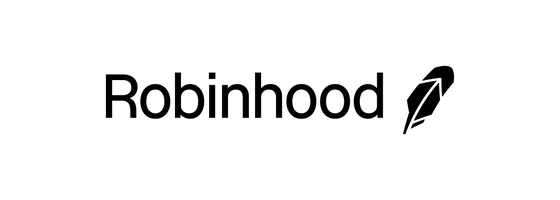
Robinhood IRA
Robinhood IRA
- $0 management fees
- $0 commission fees
- IRA Match Early Withdrawal Fee may apply
6. Contribute to your HSA
A health savings account (HSA) is a tax-advantaged account used to pay for copays, prescriptions, dental care, glasses and contact lenses, and more. You can claim a tax deduction for your HSA contributions (even if you don't itemize), lowering your taxable income and tax bill. Contributions and any interest or earnings stay in the account tax free, and withdrawals are tax free when used to pay for qualified medical expenses.
You'll need an HSA-eligible health insurance plan, sometimes called a “high deductible health plan (HDHP)” to open and fund an HSA. For 2023 the contribution limit is $3,850 for self-only coverage and $7,750 for family coverage, increasing to $4,150 and $8,300, respectively, in 2024. If you're 55 or older, you can contribute an additional $1,000 as a catch-up contribution.
7. Invest through a self-directed brokerage account
A brokerage account, such as J.P. Morgan Self-Directed Investing, gives you complete control over how you invest your money. Depending on the broker, you can buy and sell stocks, bonds, options, mutual funds, exchange-traded funds (ETFs), cryptocurrencies, commodities, futures, and more. Self-directed brokerage accounts typically offer low costs, plenty of research tools to help you make investment decisions, and an easy-to-use platform for placing trades.
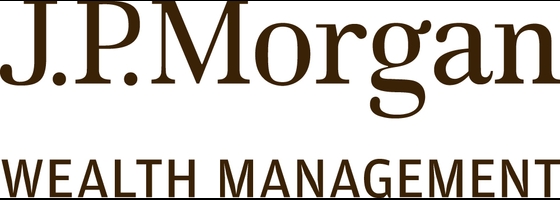
J.P. Morgan Self Directed Investing
J.P. Morgan Self Directed Investing
$0 stock & ETF trades.
$0.65/contract options trades.
$0 mutual funds trades.
Disclosure
INVESTMENT AND INSURANCE PRODUCTS ARE: NOT A DEPOSIT • NOT FDIC INSURED • NO BANK GUARANTEE • MAY LOSE VALUE
If you don't have the time, interest, or expertise to choose your own investments, consider using a robo-advisor, such as M1 Finance, that builds and automatically rebalances a portfolio based on your risk profile. For an even more hands-off experience, consider working with a financial advisor. WiserAdvisor helps you find and compare top vetted financial advisors in your area.
8. Open a high-yield savings account
If you're unsure where to put your $10K, consider stashing it in a high-yield savings account while you compare your options. The best high-yield savings accounts earn more than 5% APY. Unlike with a CD, you can withdraw your cash at any time without owing an early withdrawal penalty. Still, remember that some savings accounts limit the number of transactions you can make each month before an excess transaction fee kicks in. And the interest rate can change, unlike that of a CD, which is guaranteed for the length of the CD term.
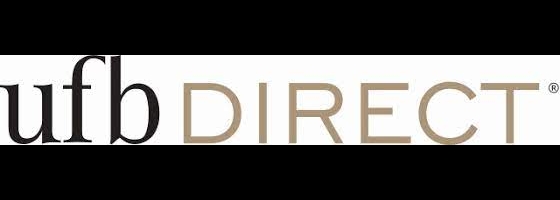
UFB Direct Savings
UFB Direct Savings
9. Invest in a REIT
A $10K budget won't get you far in today's real estate market, but there are other ways to invest. A real estate investment trust (REIT) is a company that owns and operates income-generating properties, such as apartment buildings, hotels, office complexes, medical facilities, retail centers, and warehouses. Most REITs are publicly traded on stock exchanges, so they can be an easy and highly liquid way to gain exposure to real estate without the hassles of managing rentals. REITs must distribute at least 90% of their taxable income annually to shareholders, making them a good option for generating income.
Realty Mogul is a platform that offers access to REITs and other types of real estate investments.
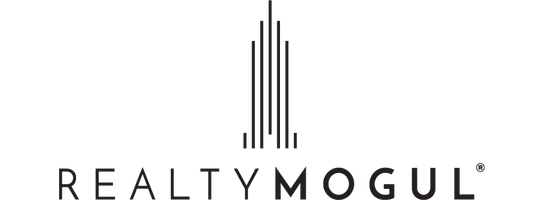
RealtyMogul
RealtyMogul
10. Invest in yourself
Investing in yourself represents different things to different people, but it generally means spending money (and time) on yourself to improve your quality of life. For example, you might invest in yourself by going back to school, learning a new skill, starting a new business, even a side hustle. Investing in yourself can also mean prioritizing your physical or mental health—whether you join a gym, pick up a new sport, or work with a coach. Warren Buffett, one of the greatest investors of all time, wrote in Forbes that investing in yourself is the one investment that supersedes all others. "Nobody can take away what you've got in yourself—and everybody has potential they haven't used yet."
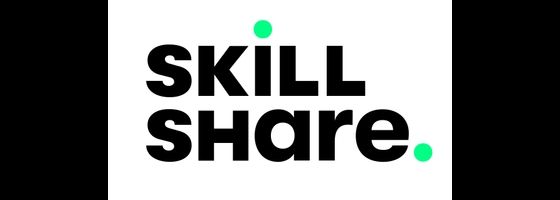 | 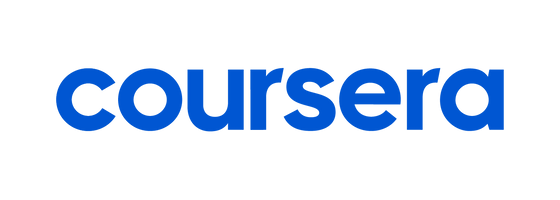 | |
|---|---|---|
| Fees | 30-day free trial for Premium version; $168 per year after free trial | 7-day free trial; $59/month, cancel anytime OR $399/year with a 14-day money back guarantee |
| Classes | Creative courses (ex.: animation, fine art); Business courses (entrepreneurship, marketing, productivity) | Business, Computer Science, Data Science, Health, Information Technology, Arts and humanities. |
| View Offer | View Offer |
Two online learning platforms to consider when you think about building out your expertise are Skillshare and Coursera. Both platforms offer a broad range of courses, though a few key differences might make one a better fit for you.
Skillshare focuses on creative skills, offering 25,000+ classes covering music, animation, social media, UI/UX design, writing, photography, graphic design, painting, and more. Classes are taught by industry leaders who share their tools and techniques via a collection of video lessons. Each class takes anywhere from 30 minutes to several hours, depending on the topic. Skillshare offers a free one-month trial with a limited selection of courses. After that, memberships cost about $168 per year, though you'll need to create and upgrade an account to see your price.
On the other hand, Coursera focuses on academic fields such as business, computer science, engineering, and data science. Coursera partners with 325+ leading universities and companies to offer nearly 7,000 classes along professional certificate, undergraduate, and graduate degree tracks. You can earn a professional certificate in about one to six months, with costs starting at $49 per month. A bachelor's degree takes an average of two to four years, with total costs starting at $9,000.
Compound interest will help all 10 investing methods
Both Warren Buffett and Albert Einstein have been credited with calling compound interest "the eighth wonder of the world." Compounding happens when the interest you earn on a savings or investment account is reinvested, so you earn interest on your interest, thereby compounding your returns. Interest can compound annually, monthly, or daily; the more frequently it compounds, the faster your balance grows.
Here's an example that illustrates the power of compounding. Assume someone asks if you'd rather have $1 million today or a single penny that doubles each day for a month. At first thought the $1 million seems like the obvious choice. However, the math says otherwise. Here's what happens when you opt for the penny that doubles every day for 30 days.
| Day | Balance | Day | Balance |
|---|---|---|---|
1 | $0.01 | 16 | $327.68 |
2 | $0.02 | 17 | $655.36 |
3 | $0.04 | 18 | $1,310.72 |
4 | $0.08 | 19 | $2,621.44 |
5 | $0.16 | 20 | $5,242.88 |
6 | $0.32 | 21 | $10,485.76 |
7 | $0.64 | 22 | $20,971.52 |
8 | $1.28 | 23 | $41,943.04 |
9 | $2.56 | 24 | $83,886.08 |
10 | $5.12 | 25 | $167,772.16 |
11 | $10.24 | 26 | $335,544.32 |
12 | $20.48 | 27 | $671,088.64 |
13 | $40.96 | 28 | $1,342,177.28 |
14 | $81.92 | 29 | $2,684,354.56 |
15 | $163.84 | 30 | $5,368,709.12 |
The growth starts slowly, and that $1 million still looks like the better option. However, the balance takes off during the second half of the month, surpassing $1 million on day 28 and $5 million by day 30. While the returns aren't realistic, the example shows how the power of compounding works: steadily and over time.
For example, say you're 40 years old and invest $6,000 a year in an IRA, earning an average annualized return of 7%. When you retire in 25 years (at age 65), you will have contributed $150,000, and the account will be worth about $380,000. Now assume you make the same $6,000 annual contribution and earn the same 7% return, but you start contributing to your IRA when you're 30 (10 years earlier). In this scenario you will have contributed $210,000 by the time you hit 65, but the account will be worth about $830,000. Start earlier yet—when you're 20—and your total contributions will be $270,000, while your nest egg will be worth more than $1.7 million.

Robinhood Traditional & Roth IRA
Robinhood Traditional & Roth IRA
- $0 management fees
- $0 commission fees
- IRA Match Early Withdrawal Fee may apply
Get a 3% match on IRA contributions each year with Robinhood Gold (subscription fee applies), or 1% without.
IRA transfers and 401(k) rollovers also get a 3% match through April 30 with Robinhood Gold, or 1% without.
To set your kids up for financial success, consider starting an IRA on their behalf when they're young. Anyone, including kids, can contribute to an IRA if they have earned income. For example, a child who starts funding an IRA at age 10 would contribute $330,000 and amass about $3.5 million by age 65, thanks to the power of compounding. If it's a Roth IRA, withdrawals in retirement are tax free, even on the earnings.
TIME Stamp: If you have $10K to invest, do it
Investing money is necessary for growing your wealth, as well as achieving a comfortable retirement. If you find yourself with a spare $10,000, don’t fritter it away on nonessential luxuries. Instead, choose one of the 10 above methods and invest it. You’ll be glad you did, and sooner than you might think, thanks to the magic of compound interest.
The information presented here is created independently from the TIME editorial staff. To learn more, see our About page.

